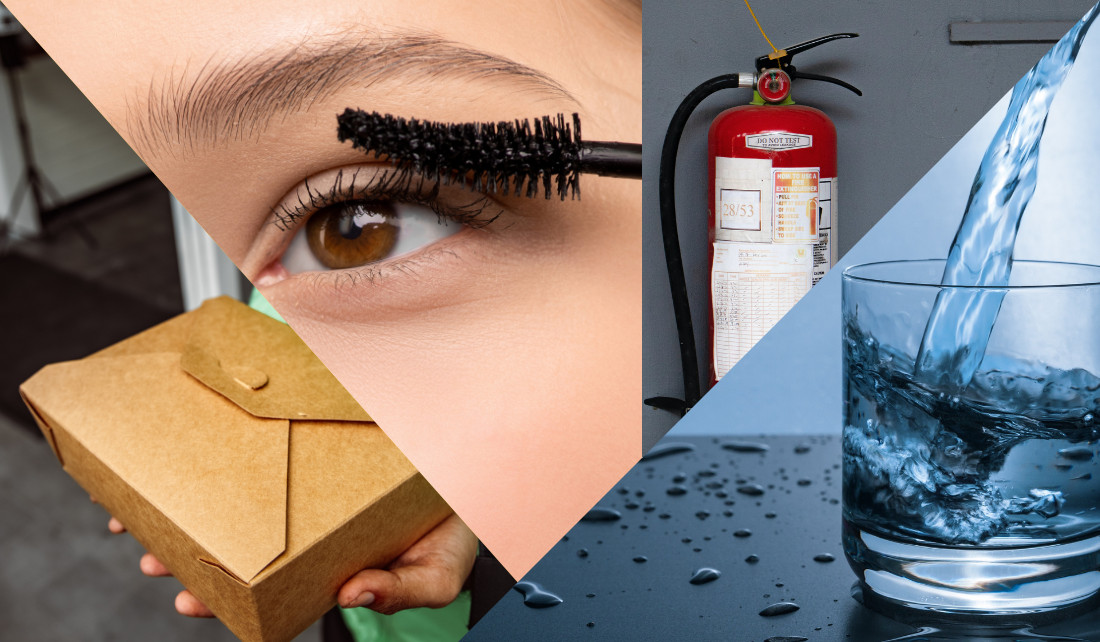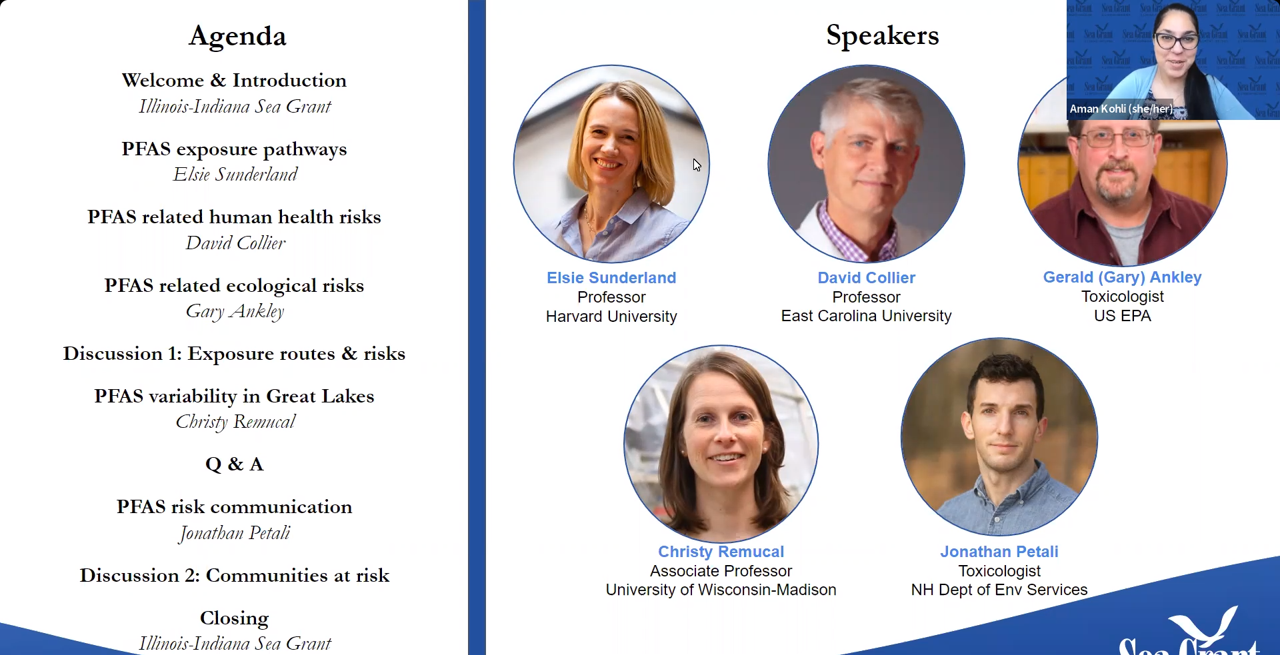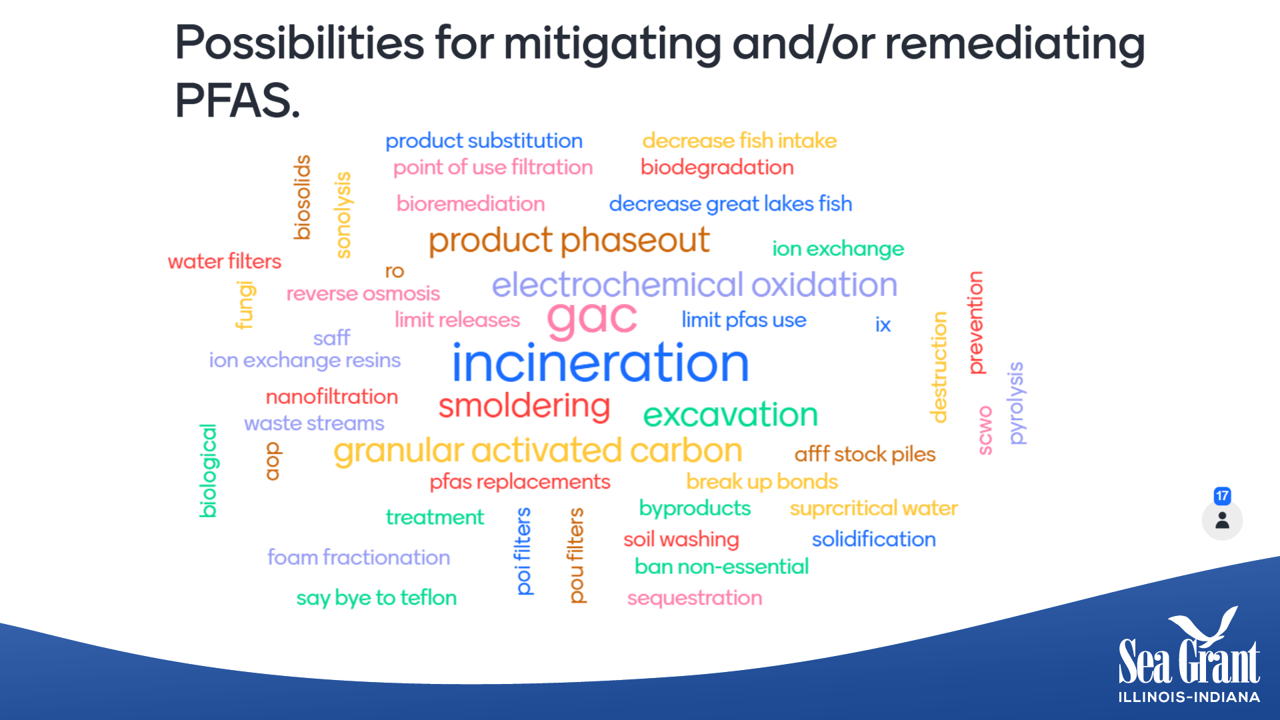
Chances are good that you’ve heard the term “PFAS” in the news, including that they are “forever chemicals” found at airports and military sites but also in everyday household items like pots and pans, makeup and drinking water. While scientists know that PFAS are per- and polyfluoroalkyl substances, have very strong bonds that allow them to persist in nature, and exist in hundreds of different forms, there is still much to learn.
In 2022, Illinois-Indiana Sea Grant (IISG) was awarded a grant from the National Sea Grant Office to help explore this issue. Specifically, IISG plans to support a Great Lakes and Lake Champlain regional research competition focused on social and economic issues related to PFAS risk, exposure and remediation. But first, the project team sought to review the status of PFAS research knowledge and needs in the Great Lakes and Lake Champlain region. The team hosted three scoping sessions in March 2023, focused on PFAS risk and exposure, PFAS mitigation and remediation, and PFAS governance and prevention.

Project Coordinator Aman Kohli reviews the agenda and introduces the speakers during the first session.
More than 60 participants from federal, state, provincial, tribal, consulting and academic institutions joined over the course of the three sessions. Presentations and discussions centered around three main questions:
- Which communities are at risk, and what are their sources and routes of exposure?
- What are the socioeconomic barriers to the adoption and implementation of some of the current/proposed solutions, and what are their alternatives?
- What information is needed to ensure all who live, work and recreate in the Great Lakes region are treated in a just and equitable way with respect to governance and prevention of PFAS contamination and exposure?
Participants shared many thoughts and ideas beyond those that will be incorporated into a Great Lakes and Lake Champlain regional request for research proposals (RFP) to be issued in May 2023. The project team—which includes IISG Director Tomas Höök, IISG Research Coordinator Carolyn Foley, IISG Pollution Prevention Specialist Sarah Zack and Project Coordinator Aman Kohli—plans to issue a publicly available workshop report in spring 2023 that includes ideas shared, research and information needs, and other concepts for further exploring PFAS in the Great Lakes and Lake Champlain region.
If you would like to receive emails related to funding competitions, including when they are open, please subscribe to our research mailing list. *Note that Purdue Mailman services are secure despite some warnings that may pop up.

A word cloud generated during an exercise in the second PFAS scoping session.
Illinois-Indiana Sea Grant is a partnership between NOAA, University of Illinois Extension, and Purdue University Forestry and Natural Resources, bringing science together with communities for solutions that work. Sea Grant is a network of 34 science, education and outreach programs located in every coastal and Great Lakes state, Lake Champlain, Puerto Rico and Guam.
Contact: Carolyn Foley, Sarah Zack

